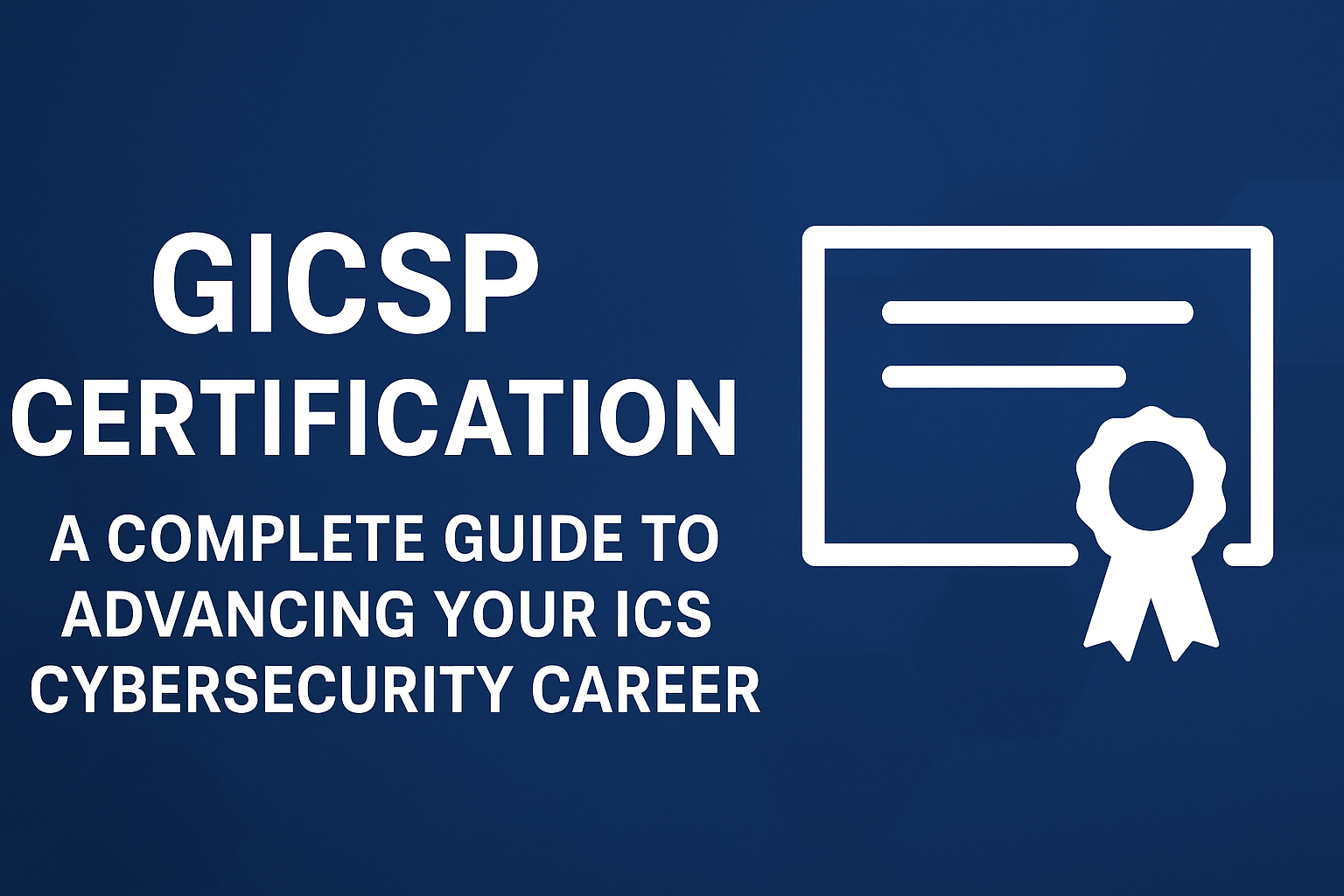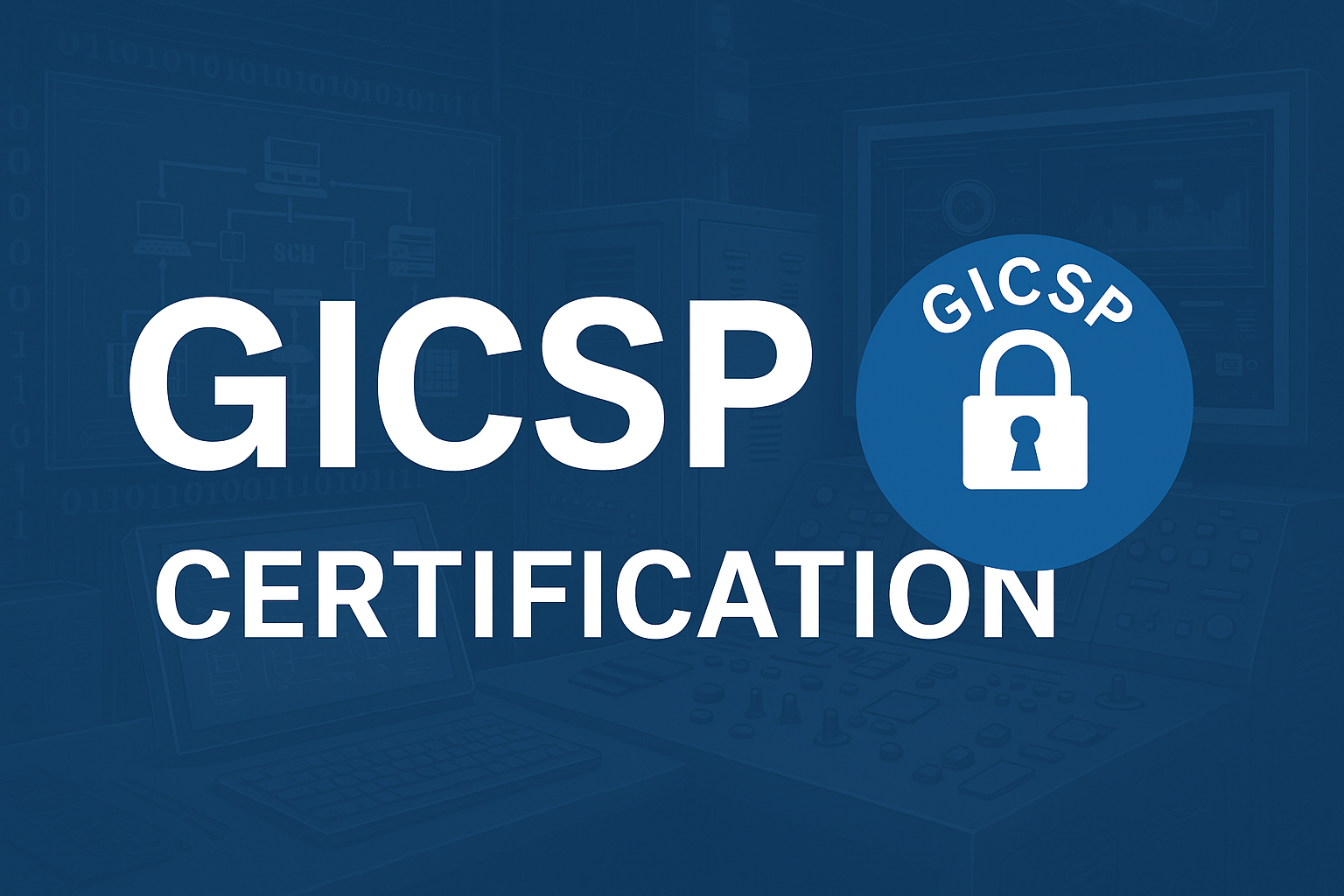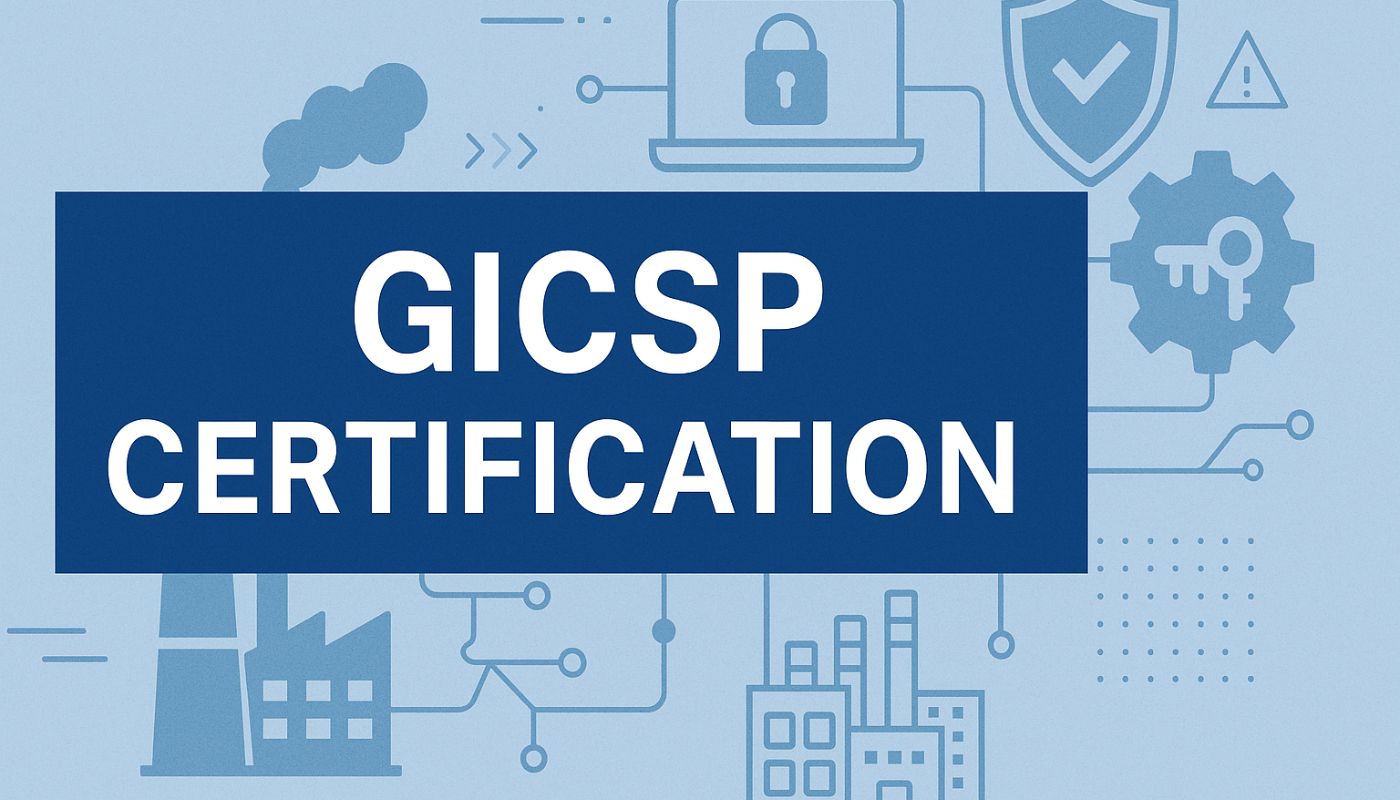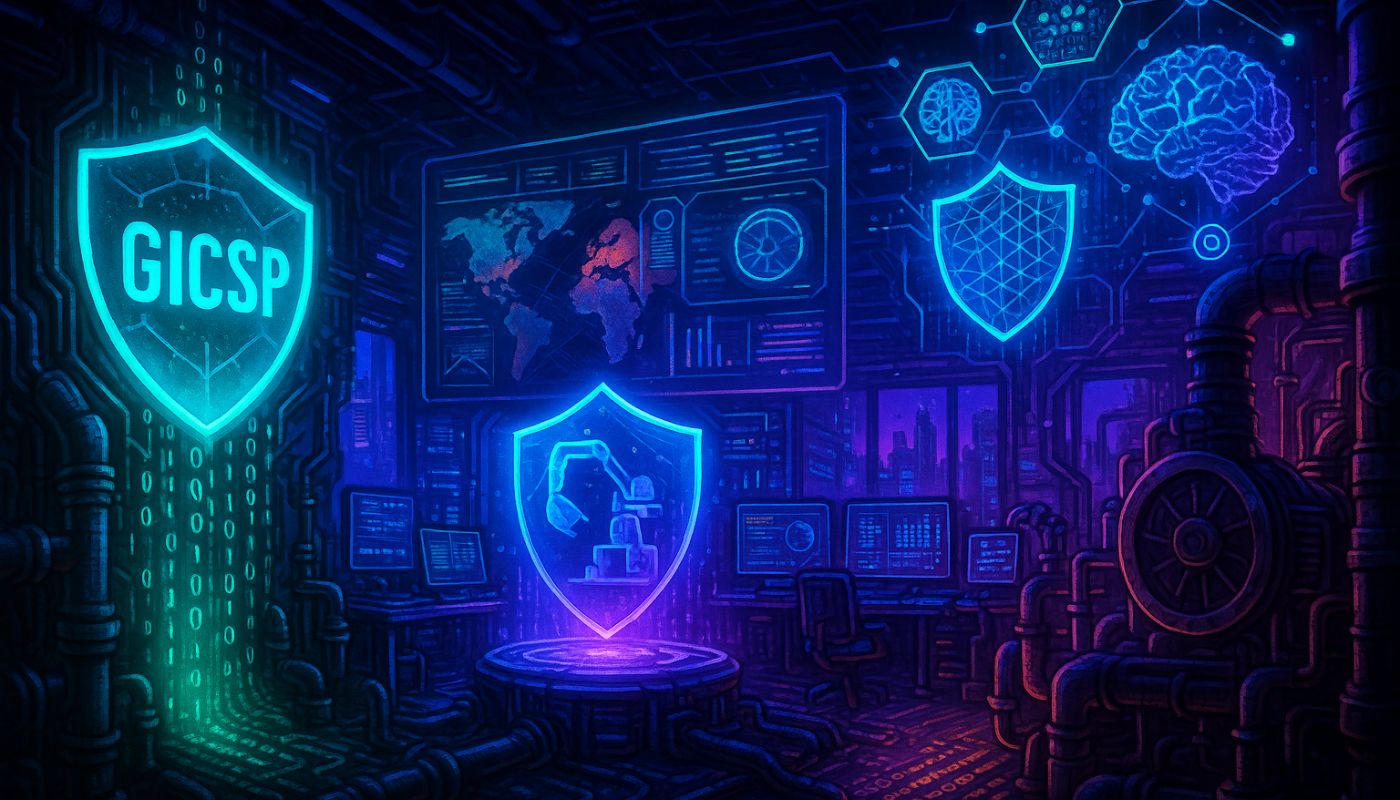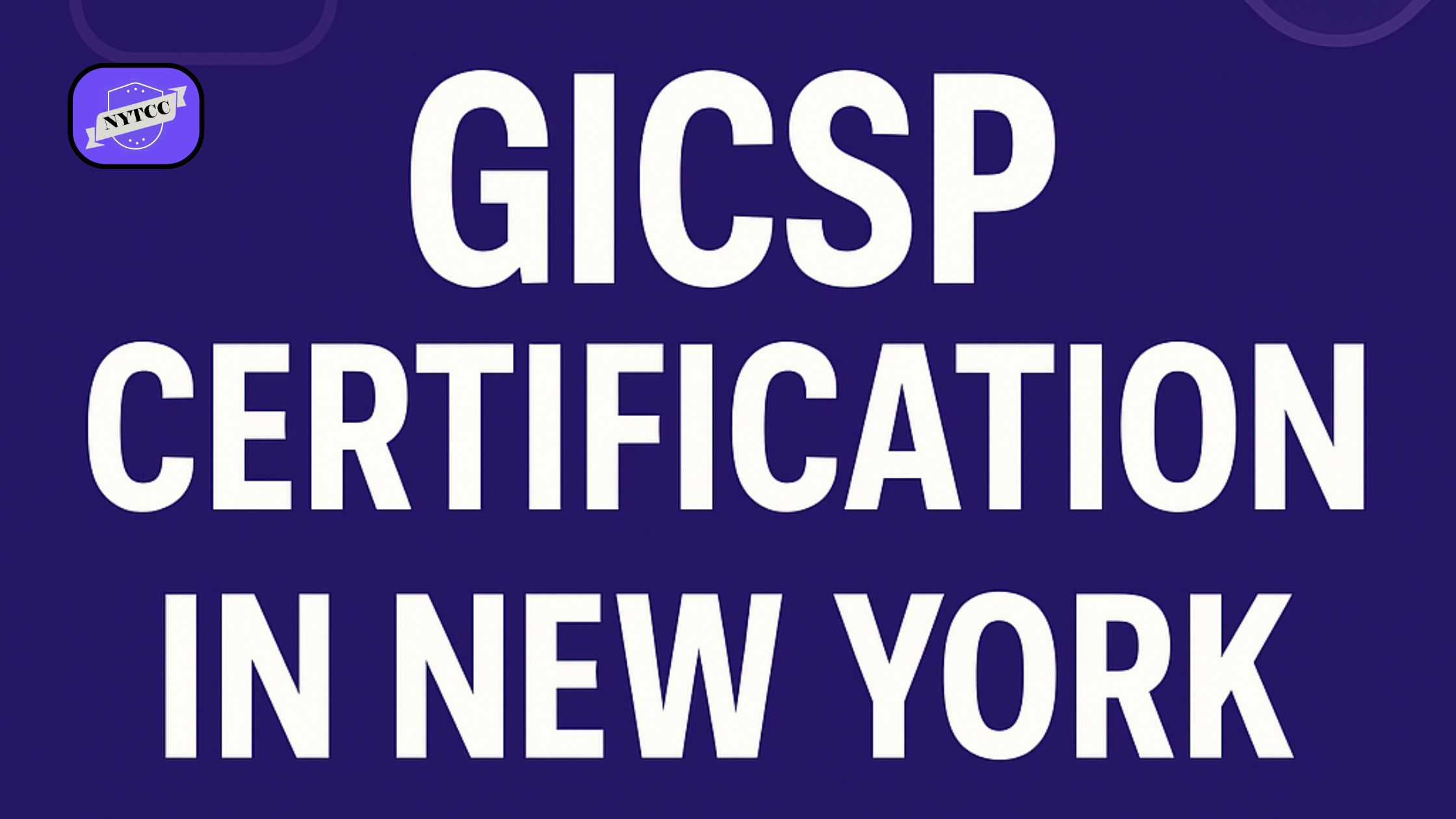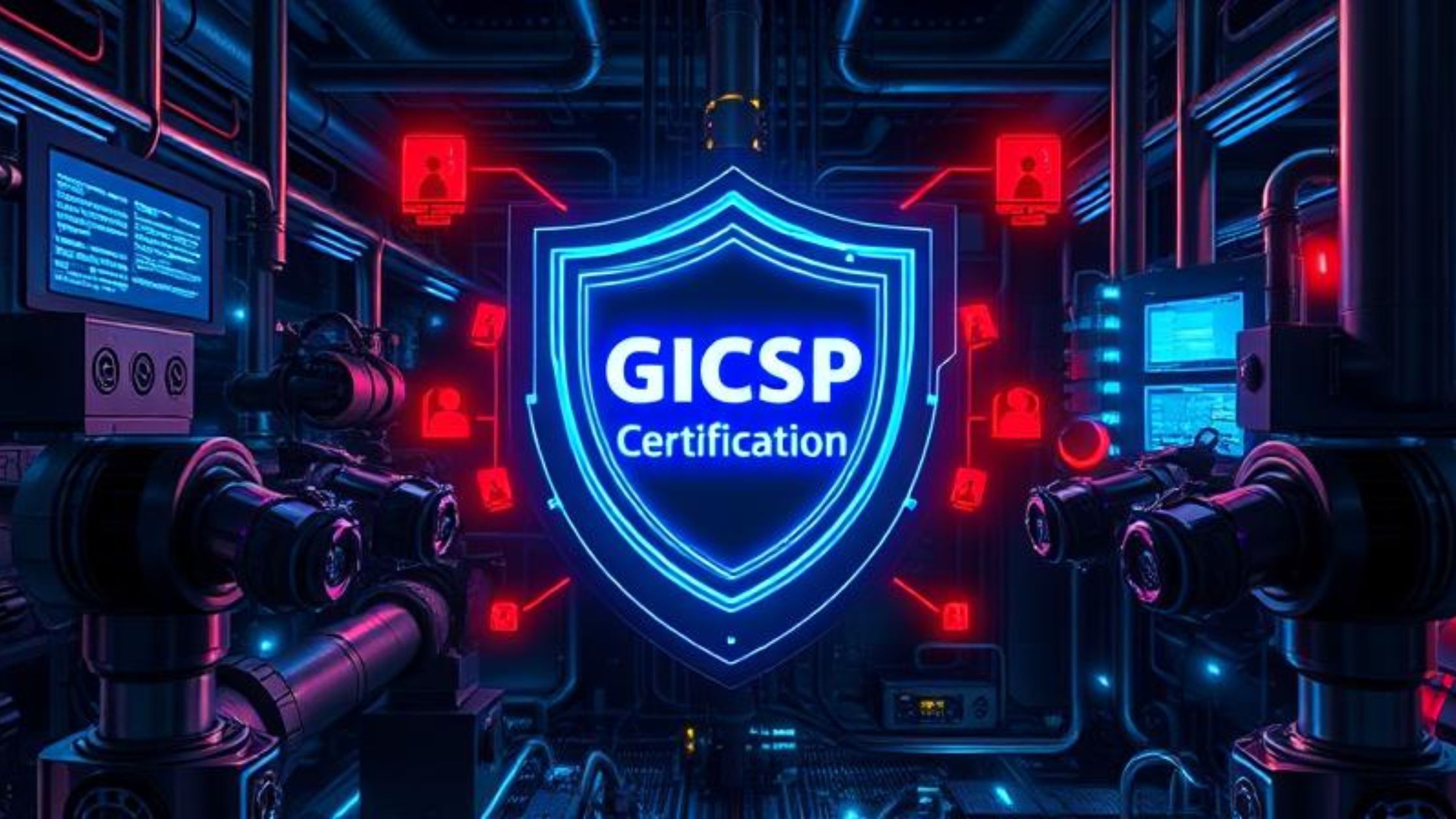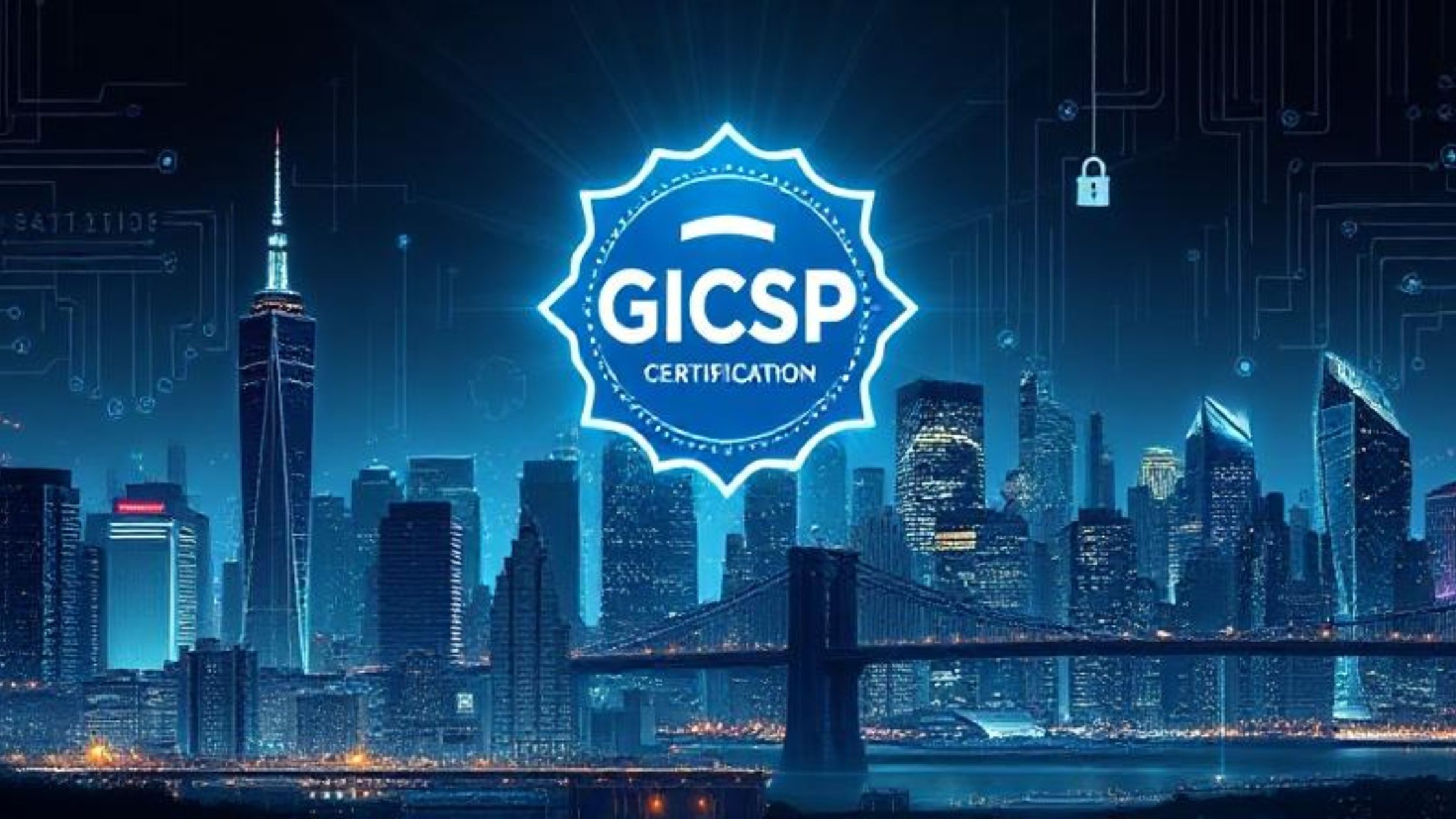Looking to validate your ICS cybersecurity skills? GICSP Certification offers global recognition and a strong career boost—get the full details now.
The GICSP Certification (Global Industrial Cyber Security Professional) is one of the most recognized and specialized credentials for professionals working at the intersection of cybersecurity and industrial control systems (ICS). Jointly developed by GIAC and SANS Institute, GICSP is uniquely tailored to bridge the knowledge gap between IT security and operational technology (OT).With the increasing threats to critical infrastructure and SCADA systems, the demand for certified ICS security professionals has skyrocketed. GICSP provides validation of the skills necessary to design, implement, and manage secure ICS systems across multiple industries.
In this blog, we’ll explore everything you need to know about the GICSP Certification—its importance, eligibility, exam details, preparation tips, benefits, and career prospects.
Why GICSP Certification Matters in 2025
In today’s digital landscape, critical infrastructure such as energy grids, water systems, oil pipelines, and manufacturing processes rely heavily on Industrial Control Systems (ICS) and Supervisory Control and Data Acquisition (SCADA) systems. Unlike traditional IT systems, ICS environments are real-time, safety-critical, and difficult to patch.As cyber-attacks targeting OT environments increase, there's an urgent need for professionals who understand both industrial operations and cybersecurity. This is where the GICSP Certification becomes vital.
The certification offers:
- A strong foundation in ICS cybersecurity principles
- An understanding of ICS architectures and their vulnerabilities
- Knowledge of incident response specific to control systems
- Recognition from leading employers in utilities, oil and gas, manufacturing, and more
Who Should Pursue GICSP Certification?
The GICSP is designed for a wide range of professionals in both IT and OT domains. Ideal candidates include:
- Industrial engineers
- Control system engineers
- Cybersecurity professionals
- SCADA specialists
- IT security professionals working in critical infrastructure
- Risk managers and compliance officers in industrial sectors
Whether you come from a technical or engineering background, GICSP Certification provides the essential bridge to secure and manage ICS environments effectively.
GICSP Certification: Exam Overview
The GICSP exam is administered by GIAC (Global Information Assurance Certification), a well-respected body under the SANS Institute.
Key Exam Details:
- Certification Code: GICSP
- Format: Proctored, web-based exam
- Duration: 3 hours
- Number of Questions: 115
- Passing Score: Approximately 71%
- Open Book: Yes (allows hard-copy materials only)
Exam Objectives Include:
- ICS Overview and Architecture
- Industrial Protocols and Communication
- ICS Threats and Attack Vectors
- Risk Management in ICS
- Network Security Architecture for OT
- Securing Components in Industrial Environments
- Incident Handling and Disaster Recovery
- Security Governance and Compliance for ICS
By covering these topics, the GICSP Certification ensures you are well-versed in securing industrial networks from both an engineering and security perspective.
GICSP vs. Other Cybersecurity Certifications
While certifications like CISSP, CEH, and CISM are valuable for general cybersecurity, GICSP Certification specializes in ICS environments.
If your goal is to work in industries like oil and gas, water utilities, or manufacturing where ICS and SCADA systems are prevalent, GICSP stands out as the top choice.
Benefits of GICSP Certification
Earning the GICSP credential offers numerous career and technical benefits:
1. Industry Recognition
GICSP is highly respected among employers in the energy, utility, and industrial sectors. It validates your expertise in securing ICS systems—an area of growing concern.
2. Career Advancement
Certified professionals often qualify for advanced roles such as ICS Security Analyst, OT Security Engineer, and Critical Infrastructure Cybersecurity Specialist.
3. Skill Enhancement
You’ll gain in-depth knowledge of both IT and OT systems, enabling a holistic understanding of cybersecurity challenges in ICS environments.
4. Better Salary Prospects
According to recent surveys, GICSP-certified professionals can command salaries between $100,000 and $150,000 annually, depending on experience and location.
5. Contribution to National Security
Working in ICS cybersecurity means you're part of the defense of vital national infrastructure, making the work both challenging and meaningful.
How to Prepare for the GICSP Exam
The GICSP exam is challenging and requires thorough preparation. Here are some effective strategies:
1. Attend SANS ICS410 Training
The ICS410: ICS/SCADA Security Essentials course from SANS is considered the gold standard for GICSP exam preparation. It covers all topics on the exam and includes hands-on labs.
2. Use Official GIAC Resources
Leverage the GIAC Practice Tests and exam blueprint. Familiarize yourself with the format and focus areas.
3. Study Industrial Protocols
Understand key industrial protocols like Modbus, DNP3, BACnet, and OPC. Knowing their vulnerabilities is critical.
4. Practice with Open Book Strategy
Since the GICSP exam is open-book (hard copy only), prepare and organize your materials effectively using tabs, indexes, and highlights.
5. Join Study Groups and Forums
Engage with others on platforms like Reddit, TechExams, or LinkedIn groups for tips and shared resources.
Maintaining Your GICSP Certification
Like most GIAC credentials, the GICSP Certification is valid for four years. To maintain the certification, professionals must:
- Earn 36 Continuing Professional Education (CPE) credits
- Submit proof of activities such as attending relevant conferences, publishing articles, or completing additional training
- Pay the renewal fee
This ensures that certified professionals stay up to date with evolving ICS security practices.
Career Opportunities After GICSP Certification
The demand for ICS security professionals is growing rapidly due to the rise of cyber-physical attacks on industrial systems. With GICSP Certification, you can pursue roles such as:
- ICS/SCADA Security Analyst
- OT Security Engineer
- Industrial Cybersecurity Consultant
- Critical Infrastructure Protection Officer
- Control Systems Risk Analyst
- Network Security Architect (ICS focus)
Industries hiring GICSP-certified professionals include:
- Oil and Gas
- Energy and Utilities
- Water Treatment
- Transportation (rail and air)
- Manufacturing
- Government and Defense
Final Thoughts: Why You Should Pursue GICSP Certification
As cyber threats to operational technology systems escalate, the need for skilled ICS cybersecurity professionals has never been greater. The GICSP Certification equips you with the knowledge, credibility, and tools to secure critical infrastructure from evolving digital threats.
Whether you’re transitioning from IT to OT, or already working in an industrial setting and want to upskill in cybersecurity, GICSP offers the perfect blend of technical depth and industry relevance. It opens doors to high-impact roles and proves your commitment to safeguarding vital systems.
Take the step today. Become GICSP-certified and position yourself at the forefront of industrial cybersecurity.
